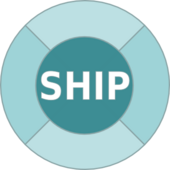
Research Departments
- Agents and Simulated Reality 23
- Augmented Vision 1
- Cognitive Assistants 4
- Cooperative and Autonomous Systems 2
- Cyber-Physical Systems 17
- Design Research eXplorations 1
- Educational Technology Lab 3
- Embedded Intelligence 10
- Innovative Factory Systems 5
- Institute for Information Systems 8
- Intelligent Analytics for Massive Data 2
- Intelligent Networks 1
- Interactive Machine Learning 1
- Multilinguality and Language Technology 1
- Robotics Innovation Center 8
- Smart Data & Knowledge Services 4
- Smart Enterprise Engineering 9
- Speech and Language Technology 1
Research Topics
- Autonomous Systems 22
- Data Management & Analysis 20
- Human-Machine Interaction 12
- IT Security 5
- Image Recognition & Understanding 9
- Language & Text Understanding 4
- Machine Learning & Deep Learning 24
- Other
- Robotics 7
- Sensors & Networks 14
- Virtual & Augmented Reality 6
Fields of application
- Environment & Energy 14
- Farming & Agricultural Technology 5
- Financial Sector 2
- Health & Medicine 11
- Industrie 4.0 17
- Knowledge & Business Intelligence 7
- Learning & Education 7
- Mobility 11
- Other
- Smart Home & Assisted Living 11
- Trade & Logistics 7
Displaying results 81 to 87 of 87.
Research Departments
- Agents and Simulated Reality 23
- Augmented Vision 1
- Cognitive Assistants 4
- Cooperative and Autonomous Systems 2
- Cyber-Physical Systems 17
- Design Research eXplorations 1
- Educational Technology Lab 3
- Embedded Intelligence 10
- Innovative Factory Systems 5
- Institute for Information Systems 8
- Intelligent Analytics for Massive Data 2
- Intelligent Networks 1
- Interactive Machine Learning 1
- Multilinguality and Language Technology 1
- Robotics Innovation Center 8
- Smart Data & Knowledge Services 4
- Smart Enterprise Engineering 9
- Speech and Language Technology 1
Research Topics
- Autonomous Systems 22
- Data Management & Analysis 20
- Human-Machine Interaction 12
- IT Security 5
- Image Recognition & Understanding 9
- Language & Text Understanding 4
- Machine Learning & Deep Learning 24
- Other
- Robotics 7
- Sensors & Networks 14
- Virtual & Augmented Reality 6
Fields of application
- Environment & Energy 14
- Farming & Agricultural Technology 5
- Financial Sector 2
- Health & Medicine 11
- Industrie 4.0 17
- Knowledge & Business Intelligence 7
- Learning & Education 7
- Mobility 11
- Other
- Smart Home & Assisted Living 11
- Trade & Logistics 7


